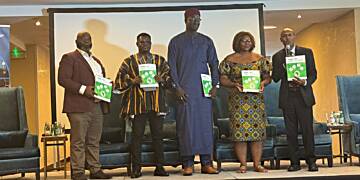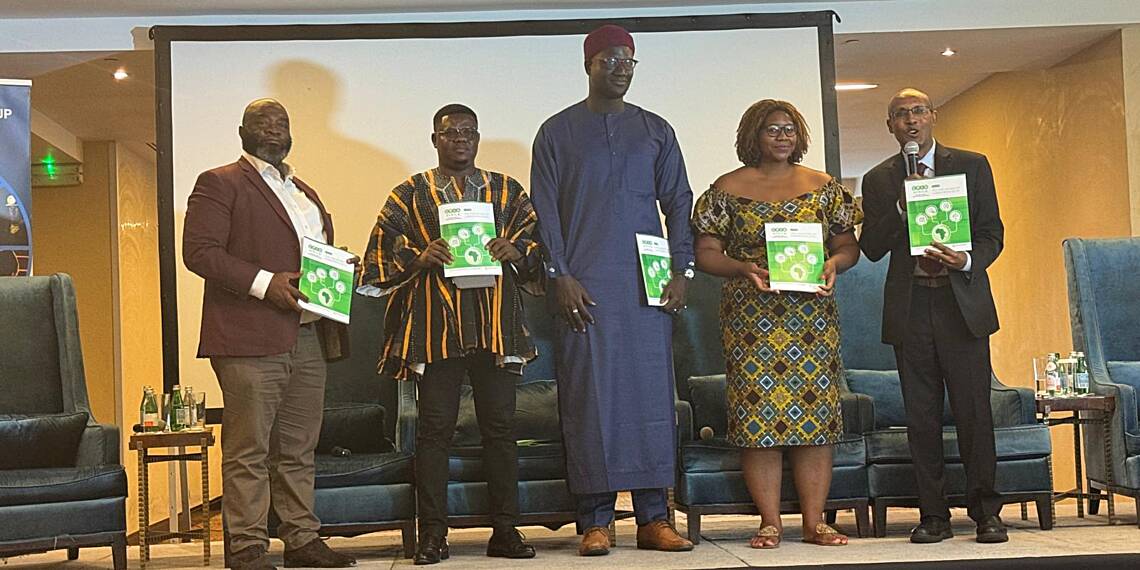Key private sector players across the continent of Africa have been proffered solutions to building a resilient and sustainable public sector in Africa at the official launch of the World Banks Country Policy and Institutional Assessment report for the year 2023.
Highlighting key findings of the report, World Bank’s Africa Region Director, Andrew Dabalen, shared that the report focused on whether policy initiatives formulated to engender change were implemented or not. According to Mr. Dabalen, the report showed that sub-Saharan African economies have largely been performing better than the rest of the world in the year under review.
However, touching on the four thematic areas the report focused on which included Economic Management and Debt Policy, Structural Policies, Social Inclusion, and Public Sector Management, it was identified that a lot of the African countries still faced challenges with issues bordering on quality of budgetary and financial management, transparency, accountability and corruption.
The report also indicated that most countries that were reviewed had weaker public sectors. It was identified that public sector investments were unsustainable in most sub-Saharan African countries. Mr. Dabalen, however, suggested that the prevailing circumstances offer Africa’s private sector to aggressively exploit the shortfall.
There was a consensus among experts who discussed the report at the launch that most of the challenges identified were or are within the reach of most of the countries to solve.
Founder and Senior Partner of AB and David Africa, a Pan-African business law firm with offices in Ghana, Zambia, Uganda, Zimbabwe, and Kenya, David Ofosu-Dorte during a panel discussion at the official launch of the CPIA 2023 report argued that Africa’s private sector is not putting the needed pressure on the public sector to deliver on the promises which will serve as a springboard for private sector augmentation. “Africa’s private sector isn’t putting much pressure on the public sector to be efficient”, Mr. Ofosu-Dorte intimated during a panel discussion.
Founder and CEO of Environment360, a Ghana-based social enterprise that supports the reduction of plastic pollution through the development of collection points and processing centers that empower informal sector plastic waste collectors, Cordie Aziz Nash argued that one of the reasons a lot of African countries have challenges with exchange rate fluctuation is because is the unexplained taste for foreign products. According to her, the continent is replete with many rich and best alternatives to some of the products that are imported into countries on the continent. What is critical, in her view, is how to change the mindset that locally manufactured products are better alternatives to imports.
Cordie says when this is done, it will reduce the rate at which local currencies are changed into dollars for importation.
Meanwhile, World Bank’s Africa Region Director, Andrew Dabalen, posited that there are huge opportunities in trade and thus called on African countries that have ratified the Africa Continental Free Area to begin trading amongst themselves. He, however, bemoaned the low rate of intra-African trade or regional trade.
According to him, to improve, governments should come up with bold and innovative policies to empower the private sector in Africa to spur economic growth.
The CPIA report is considered a composite assessment that evaluates the performance and quality of policies introduced by some African countries, particularly those in Sub-Sahara Africa.
CPIA Africa 2024 launched on July 16th where a diverse panel of economists and entrepreneurs discussed policies to promote the private sector development in Ghana and throughout sub-Saharan Africa.
In 2023, Ghana had a CPIA score of 3.4, ranking above the average score of 3.1.




















